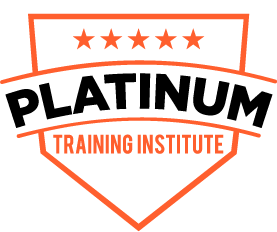Booking options
£450

£450
Get a 10% discount on your first order when you use this promo code at checkout: MAY24BAN3X
On-Demand course
Beginner level
With our Certified Sports Nutrition Coach (NASM-CSNC) course, you’ll learn how to develop personalized nutritional recommendations to optimize performance and recovery for fitness clients and athletes.
Gain an edge on your competition by learning the latest sports nutrition principles to support healthy performance. You’ll help your clients improve their results and transform their training through nutrition.
Are you ready to help fitness clients and athletes reach their full potential through nutrition? Sign up to become a Certified Sports Nutrition Coach today!
Pre-requisites:
A fitness credential is recommended but is not required for the Sports Nutrition Certification.
What You Will Learn:
Section 1: Performance Nutrition Profession
Chapter 1: Introduction to Performance Nutrition
Learn to differentiate performance nutrition from general nutrition strategies, and understand the profession of a Sports Nutrition Coach, the skills needed, and the populations they work with.
Chapter 2: Scope of Practice
Understand a Sports Nutrition Coach’s scope of practice and professional expectations, and be able to determine when to refer athletes to another professional.
Chapter 3: Evidence-Informed Practice
Differentiate evidence-informed practice from evidence-based practice and determine high-quality sources of information.
Chapter 4: Understanding the Spectrum of Athletes and Performance
Learn to identify where athletes exist within the spectrum of athlete types, and understand needs based on physiological, sociological, cultural, and ethical factors.
Section 2: Metabolism and Energetics
Chapter 5: Essentials of Metabolism
Explain aerobic and anaerobic metabolism, and be able to describe energy balance and related concepts.
Chapter 6: Energetics of Performance
Understand the difference between energy balance and energy availability, and determine fueling requirements for optimal performance.
Section 3: Nutrients and Hydration
Chapter 7: Protein
Learn about the function of protein and establish protein requirements in a dietary program.
Chapter 8: Carbohydrates
Explain the role of carbohydrates for athletes and describe methods for establishing requirements in a dietary program.
Chapter 9: Fat
Understand the role of fats in sports nutrition and how different sports may rely on fats to a greater extent than others.
Chapter 10: Micronutrients
Describe recommendations for incorporating micronutrients into an athlete’s diet and identify common food sources for essential vitamins and minerals.
Chapter 11: Hydration
Communicate appropriate hydration strategies for during and between training bouts to athletes.
Section 4: Performance Nutrition Strategies
Chapter 12: Periodization and Nutrient Timing
Describe appropriate periodization and nutrient-timing strategies to optimize adaptations to training, enhance recovery, and to ensure optimal performance.
Chapter 13: Body Composition
Explain the relationship between body composition, athlete type, and performance, and describe methods for assessing body composition.
Chapter 14: Recovery
Identify the three R’s of recovery and their relevance to performance nutrition, and explain the importance of recuperation for athletes.
Chapter 15: Supporting the Ill/Injured Athlete
Explain the various levels of appropriate support for illness and injury based on severity and determine when client referral is necessary.
Chapter 16: Supplementation
Assess the athlete’s need for supplementation using a thorough decision-making process.
Section 5: Putting Science into Practice
Chapter 17: Performance Nutrition Assessment and Evaluation
Identify pre-appointment data gathering methods to determine athlete’s baseline status and select appropriate nutritional assessment methods specific to an athlete based on pre-appointment data.
Chapter 18: Fueling for the Work Required
Determine appropriate dietary and supplement strategies to optimize fuel supply, fuel stores, and fuel utilization.
Chapter 19: Coaching Process/Approach
Identify barriers to behavior change, specialist diets, and their influence on adaptations to training, recovery, and athletic performance, and apply appropriate levels of coaching.
Chapter 20: Programming
Evaluate all findings from an athlete’s needs analysis and design a nutrition intervention which addresses optimal health and performance goals.
Final Exam:
After the completion of the course, you will take an online final exam from the comfort of your own home, or wherever you prefer to take tests. The test is 100, multiple-choice questions. You are allowed to go back and reference the course while taking the exam. The exam is timed and cannot exceed 90 minutes. To pass, you need a score of 70% or higher and you have up to 3 attempts to pass.
A Nutrition Coach works with a more general clientele to develop strategies that address issues like obesity, body composition, aging, and lifestyle approaches to disease management. A Sports Nutrition Coach digs a little deeper, working specifically with athletes to educate and provide coaching around performance nutrition within sports.
While these two roles differ in the audience they serve, they do work hand in hand to provide a well-rounded understanding of nutrition.
To that end, our CNC course sets down an effective foundation in nutrition to build from, helping through a fundamental understanding of how to serve clients’ nutrition needs. From there, our CSNC program takes what you learn throughout CNC and builds upon it to target a specific client base to focus on strategies that impact performance and recovery.
NASM-CSNC is approved for Continuing Education Units (CEUs) by the following organizations:
NASM – 1.9 CEUs
AFAA – 15 CEUs
There are 100 multiple choice questions on the final exam and you’ll have 90 minutes to take it. You have 365 days from the date of purchase to complete your final exam.
To maintain your certification, you must submit 1.9 CEUs (continuing education units), a renewal application, and fees every two years.
